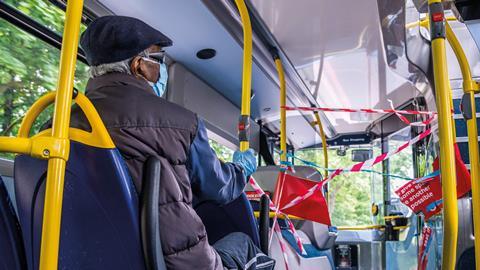The success of home-working and lack of a Covid-19 vaccine mean many in the profession are in no rush to return to the office and get back to ‘normal’ – even if lockdown restrictions are eased
As the Gazette’s print edition went to press, the UK was awaiting Boris Johnson’s announcement about how lockdown restrictions might be eased in the coming weeks.
One priority was going to be allowing more people to go to work and get the economy moving again. Leaked plans indicated guidance for office workplaces would include staggered arrival and departure times, floor tape to keep staff two metres apart and discouraging hot-desking.
But even if logistical issues can be overcome – how people can commute at a safe distance from each other is clearly a massive challenge – the announcement might be moot anyway. Because if the last seven weeks have shown anything in the legal sector, it is that most lawyers need not be chained to desks or even required to come in. Even if we could go back tomorrow, why would we?
‘If the firm is functioning well remotely, why would you require staff to return to towns and cities where the greatest risk is outside the office?’ asks Mark Harvey, head of the specialist PI team at national firm Hugh James, speaking in a personal capacity.
‘I recognise some firms need to return. But I don’t think one should presume that firms must encourage a return. And until schools are reopened I don’t see how any business can return.’
Most firms the Gazette contacted are happy to continue operating with lawyers working remotely. This includes national consumer-facing firms Irwin Mitchell, Slater and Gordon and Simpson Millar.
Alicia Alinia, chief people officer at Slater and Gordon, said clients have reported no significant impact on service levels. For now the model remains to work from home, even if restrictions are partially lifted. ‘We have already taken the decision that, for the time being, nearly all our people will continue working remotely,’ she said. ‘We have 98% of people working from home and our technology platforms for fee-earners, call centre colleagues and support staff are built for an agile work environment.
‘Consequently we have no need to ask anyone to take extra risk or put additional pressure on public transport or other public services.’
A Simpson Millar spokesperson said where possible remote working will continue for this month at least, with staff surveys showing it has proved ‘overwhelmingly popular’.
The same applies to City firms. Writing for The Hill website last week (see p13), Dentons global chairman Joe Andrew said most professionals have the luxury of not going back to the office until a vaccine is made widely available. He added: ‘Lawyers, bankers, accountants, consultants, executives of all types, all are wondering when they and others like them might “go back to the office”, as if the answer will come by government edict and the only variable is timing. But, in reality, the answer is it’s not going to happen – at least not as we once knew it – no matter what any government official says.’
The problem for firms may well end up being what to do with that shiny city centre office which suddenly looks like a financial burden they could do without.
Jason Wood, head of commercial property at Midlands firm Smith Partnership, agrees that working from home is the new norm for the foreseeable future – including beyond the lockdown. But firms will not be able to end leases without significant financial consequences, and many will have signed premises agreements in the names of partners or where partners have given personal guarantees.
Negotiations are already happening, with some corporate landlords acting to protect assets which may no longer be so coveted.
Wood added: ‘These landlords are being proactive and contacting tenants to offer new lease terms with some form of rent concession in the short-term in return for a longer lease.’
Suzanne Gill, real estate partner at City firm Wedlake Bell, said most firms will not rush into hasty decisions – and indeed they may need the same office space if they want to satisfy social distancing rules.
‘It seems likely that we’ll have to stay further apart from each other for at least a year or two, so firms will probably need the same office footprint to accommodate fewer staff each day,’ she said. ‘If that’s right, there’s no need to end your office lease straight away, though you may well think the rent should be negotiated down next time you get the chance.’





































10 Readers' comments